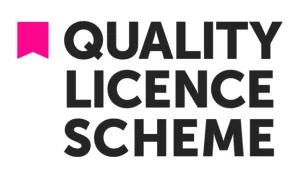Welcome to Open Learning College – Change your career, Increase your salary, and Improve your life.
 Course Overview
Course Overview 
Embark on a transformative learning journey with the UK’s most innovative home study provider, offering courses designed to unlock your true potential and facilitate the career change you desire. Access our distance learning courses directly from anywhere, anytime, and acquire industry-recognised Professional Qualifications essential for advancing in your career.
Specifically, explore the flexible and convenient Egyptology (Level 3) course, an ideal way to gain a diploma qualification. Whether you aim for further education, improved job prospects, or expanded knowledge, this comprehensive course allows you to prepare thoroughly for exams or careers through home study. Plus, it’s structured to be accessible and beneficial even if you have no prior knowledge in Egyptology.
This Diploma is specifically designed for those aspiring to develop their knowledge of Ancient Egypt.
Whether you want to learn about Egyptology just to satisfy for your own curiosity or intend to study Egyptology at university then this is the course for you.
The course is subdivided into 10 modular areas, with each unit investigating a different aspect of Egyptology. In this course you will learn about the geography of Egypt and why the Nile River was crucial in the development of this iconic society. You will also investigate different historical periods of ancient Egypt and explore many of the monumental buildings, cities and temple complexes as well as consider some of the artifacts and individuals that made Egyptian civilisation so unique.
The course explores the history of Egypt from the earliest Predynastic Period to the end of Pharaonic Egypt with the death of Queen Cleopatra and the annexation of Egypt by Rome. The course provides an opportunity to investigate the past through the examination of a different civilisation and will help you to consider the lives and attitudes, perceptions and beliefs of a people whose long-lived civilisation is one of the foundation stones of our modern world.
The course will also help you to develop your research and analytical skills and lay good foundations for any future study in the field of archaeology and ancient history.
 Course Key Topics
Course Key Topics
the Egyptology (Level 3) course is divided into 10 modules.
Module 1: The Land and People
This initial module sets the scene for the historical modules to follow and examines the land and people of Ancient Egypt. The River Nile was (and still is) the source of life for Egypt and the culture that resulted depended on this mighty river for its very existence. The Geography of Modern and Ancient Egypt are identified including discussion of the Nile Delta and the Faiyum.
Egypt’s Ecology and Environment as well as the natural resources that the ancient Egyptians exploited are also considered. The module also investigates the locations of ancient towns, cities and archaeological sites that have been found along the Nile Valley, as well as the various different peoples who lived there. The unit also provides a chronology of ancient Egypt and briefly explores the legacy of ancient Egypt’s heritage for us all.
Module 2: A History of Egyptology
The second module of the course focuses on the history of exploration and research of Egypt that began in the 18th century and has continued through to today. This module will take you on a journey with the Western explorers of Egypt and will also highlight the attitudes and interpretation of Egypt’s ancient ruins during the Medieval and Renaissance periods.
With the French expedition by Napoleon to Egypt in 1798 we see the birth of what is now known as Egyptology and the module will consider some of the exploits and motives of the nineteenth century adventurers, before discussing the development of modern Egyptology as begun by Flinders Petrie and its development through to present day. The module completes with a brief assessment of the archaeological techniques and methods used by Egyptologists, both in the field and in the laboratory.
Module 3: The Predynastic Period
This third module is the first of four modules that outline the history of ancient Egypt. This module begins with the earliest periods of ancient Egyptian history, culminating in the Predynastic period. The module explores the pre-Neolithic period and the settlement of the Nile Valley by human beings as well as evidence for the first farming communities in Egypt. The module then looks at the important early cultures of the Egyptian Neolithic: the Badarian and Naqada cultures and the emergence of an Egyptian state and the establishment of the earliest period of Dynastic rule.
This unit will introduce you to several key early Dynastic artefacts including the Macehead of king Scorpion as well as the Narmer Palette. You will also investigate the archaeological sites of Hierakonpolis, Abydos and Saqqara and finally consider the development in the Predynastic and early dynastic periods of writing, artisanship, the development of kingship and features of early art and architecture.
Module 4: The Old Kingdom Period
This module examines one of the more famous periods of Egyptology; the Old Kingdom. The module outlines the chronology of the Old Kingdom period before discussing the development of those most iconic of all Egyptian structures; the Pyramid complexes at Saqqara and Giza and the continued development and refinement of pyramid building through the 5th and 6th Dynasties.
The module also explores the cult of kingship in Egypt as well as the religious, economic and social changes that took place during the Old Kingdom period. Finally, the module explores the decline of the Old Kingdom and the first of ancient Egypt’s ‘Dark Ages’; the First Intermediate Period and the rise of the Theban kings and the reunification of Egypt.
Module 5: The Middle Kingdom and Second Intermediate Period
The 5th module examines the Middle Kingdom. The Middle Kingdom was a period of renewal and resurgence for Egypt and in this module you will explore the achievements of the period and the reigns of its many kings. Beginning with the 11th Dynasty and the reunification of Upper and Lower Egypt, the module will take you through the reigns of several notable pharaohs including Mentuhotep II and III.
The 12th Dynasty is also covered in this module and you will explore a new royal residence which was established at Itjtawy. The module also examines the life and career of King Senusret I and the return of the practice of Pyramid building. It is in this module that the important historic documents known as the letters of Hekanakhte are examined. The reign of King Senusret III and his campaigns in the Near East are also outlined and the Egyptian renaissance under king Amenemhat III and the 13th Dynasty are examined as well as the second collapse of the ancient Egyptian state which resulted in the Second intermediate period; another ‘Dark Age’ period in the history of Egypt. The invasion by the Hyksos is also explored within this module.
Module 6: The New Kingdom
This module concerns itself with the period of Egypt’s renaissance known as the New Kingdom. The New Kingdom was an era in which many of the most famous and better known Pharaohs lived and ruled in Egypt. The module begins with a discussion of the reigns of Ahmose and Amenhotep I and the emergence of the Valley of the Kings as a burial site for royalty. The module then follows the course of New Kingdom history through the reigns of Thutmose I-III, who hunted the Mitanni and elephants, Queen Hatshepsut, one of Egypt’s most famous rulers as well as Amenhotep II, Thutmose IV and Amenhotep III; Amenhotep IV/ Akhenaten and the Amarna Period, when Egypt’s religions were rocked to their core.
This unit also examines the reign of the boy-king Tutankhamun, made famous by the discovery of his largely intact tomb by Howard Carter, before introducing the 19th Dynasty and the great Pharaohs Sety I and Ramses II. The module ends with a discussion of the decline in power of ancient Egypt under the later Ramessid kings during Egypt’s 20th Dynasty.
Module 7: The Third Intermediate Period and Late Period
This module is the final chronological history module of the course and discusses the last of Egypt’s ‘Dark Ages’ as well as the period known as the Third Intermediate Period and the evidence and developments of Egypt’s 21st, 22nd and 23rd dynasties. The module then goes on to explore what is called the Late Period and periods of Persian rule in Egypt from the 6th century BC before the arrival of Alexander the Great and the Macedonians in the 4th century BC.
The module then goes onto to discuss the Ptolemaic Period and it is here that you will consider the famous ancient city of Alexandria, a rival to Rome in size and power before ending with the brief reign of the infamous Queen Cleopatra, most famous for her affair with Mark Anthony and the end of ancient Egypt with its annexation by Rome.
Module 8: Daily Life in Ancient Egypt
What was daily life was like in ancient Egypt? In this module you will be led through a series of case studies sourced from archaeological findings as well as ancient Egyptian texts, tomb-paintings and artefacts in order to discover what life and death were like for the inhabitants of ancient Egypt. The subjects covered in the module include the importance of the River Nile in Egypt from food production along its fertile banks, to transportation and a discussion of some of the many Nile myths. Some of the major Egyptian deities will also be considered.
The module also considers the role of the king in Egypt as ruler and priest. The importance of scribes and also the bureaucracy that organised and regulated life for the inhabitants of ancient Egypt. The module will help you to examine what their lives were like and presents some of the records and observations that they made of life in ancient Egypt. The lives and activities of Egypt’s artisans, tomb-painters and other trades are explored and finally death in ancient Egypt. It is here that we shall explore the process of mummification and burial.
Module 9: Ancient Egyptian Achievement
This module helps you to explore the legacy of ancient Egypt and the great achievements of its craftsmen, architects and engineers. The achievements of the ancient Egyptians have left a marked impression of societies and still influence us in ways today. The module explores some of these ancient Egyptian achievements including the Pyramid Complexes of Giza and Saqqara; the craft skills of ancient Egyptian potters and metal smiths. The Temple complex of Karnak on the banks of the River Nile at Thebes is examined as are the craft skills of ancient Egyptian artisans in stone and wood.
We shall also look at Ramesses II’s temple at Abu Simbel, which was the focus of international rescue efforts during the construction of the Aswan Dam and one of the largest and ambitious programs ever which resulted in the removal and reconstruction of the temple complete with the hill into which it was built!
Module 10: Research in Egyptology
The final module of the Egyptology Diploma course will help you to consider aspects of Egyptian history and future opportunities for further research in Egyptology. The module looks at questions and controversies in Egyptology, and considers the ancient Egyptian’s own perceptions of history and time, as well as their relationships with the outside world. The module then goes on to present some of the archaeological developments in Egyptology that have been made over the years including the development of and application of scientific techniques in this field.
Finally, the module details current research centres and Universities who are engaged in Egyptology, as well as museums around the world which hold important Egyptian collections and websites that can be used for further exploration of ancient Egypt and Egyptology. Module 10 also provides 10 dissertation topics for the students on which to write a 5000 word assignment about various aspects of ancient Egypt and Egyptology.
(Please click on the curriculum tab above to see a detailed view of each module)
Course Content
Egyptology (Level 3) – FREE Starter Pack
How to…. (a series of explainer videos)
Module 1 – The Land and People
Module 2 – A History of Egyptology
Module 3 – The Predynastic Period
Module 4 – The Old Kingdom Period
Module 5 – The Middle Kingdom and Second Intermediate Period
Module 6 – The New Kingdom
Module 7 – The Third Intermediate Period and Late Period
Module 8 – Daily Life in Ancient Egypt
Module 9 – Ancient Egyptian Achievement
Module 10 – Research in Egyptology
Course Resources
Final Exam
College Announcements
🔍 Unlock the Egyptology Level 3 with £50 OFF the Course! 🏛️💰
Ready to embark on a fascinating journey through the mysteries of ancient Egypt?
For a limited time, seize the opportunity to enrol in our Egyptology Level 3 course with an exclusive £50 discount!
Use code EGYPT50 at checkout before the month concludes!
🌟 Why Choose Our Egyptology Level 3 Course
Presented by Open Learning College, this course is your gateway to unravelling the secrets of ancient Egyptian civilisation. Dive into comprehensive modules covering essential topics—from hieroglyphics to archaeological techniques. Gain hands-on experience in exploring the rich history, art, and culture of ancient Egypt.
💡 What Makes Our Course Shine
Expert Guidance: Benefit from experienced tutors providing support throughout your learning journey.
Real-World Skills: Acquire practical knowledge crucial for success in the field of Egyptology.
Flexible Learning: Tailor your studies to your schedule with 24/7 access to course materials.
Don't miss this chance to unlock the secrets of Egyptology at a discounted rate! Enrol now, use code EGYPT50* at checkout, and embark on your journey towards becoming a skilled Egyptologist. 💰🔍
*This discount code cannot be used in conjunction with any other offer.









 Get Social!
Get Social!











Sophie Anderson